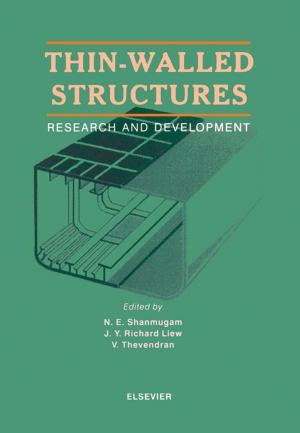Control and Estimation of Piecewise Affine Systems
Nonfiction, Science & Nature, Technology, Engineering, Mechanical| Author: | Jun Xu, Lihua Xie | ISBN: | 9781782421627 |
| Publisher: | Elsevier Science | Publication: | April 21, 2014 |
| Imprint: | Woodhead Publishing | Language: | English |
| Author: | Jun Xu, Lihua Xie |
| ISBN: | 9781782421627 |
| Publisher: | Elsevier Science |
| Publication: | April 21, 2014 |
| Imprint: | Woodhead Publishing |
| Language: | English |
As a powerful tool to study nonlinear systems and hybrid systems, piecewise affine (PWA) systems have been widely applied to mechanical systems. Control and Estimation of Piecewise Affine Systems presents several research findings relating to the control and estimation of PWA systems in one unified view.
Chapters in this title discuss stability results of PWA systems, using piecewise quadratic Lyapunov functions and piecewise homogeneous polynomial Lyapunov functions. Explicit necessary and sufficient conditions for the controllability and reachability of a class of PWA systems are considered along with controller and estimator design methods for PWA systems using linear matrix inequality (LMI) and bilinear matrix inequality (BMI) techniques. A PWA approach to a class of Takagi-Sugeno fuzzy system is discussed in depth. The book uses a number of mechanical systems, such as disk servo systems to illustrate the advantages of the proposed methods.
- Provides new insights on properties of PWA systems, including stability, stabilizability, reachability and controllability
- Presents a unified framework for analysis and synthesis of both continuous-time and discrete-time PWA systems
- Presents novel approaches for stability analysis and control design based on the promising SOS techniques
As a powerful tool to study nonlinear systems and hybrid systems, piecewise affine (PWA) systems have been widely applied to mechanical systems. Control and Estimation of Piecewise Affine Systems presents several research findings relating to the control and estimation of PWA systems in one unified view.
Chapters in this title discuss stability results of PWA systems, using piecewise quadratic Lyapunov functions and piecewise homogeneous polynomial Lyapunov functions. Explicit necessary and sufficient conditions for the controllability and reachability of a class of PWA systems are considered along with controller and estimator design methods for PWA systems using linear matrix inequality (LMI) and bilinear matrix inequality (BMI) techniques. A PWA approach to a class of Takagi-Sugeno fuzzy system is discussed in depth. The book uses a number of mechanical systems, such as disk servo systems to illustrate the advantages of the proposed methods.
- Provides new insights on properties of PWA systems, including stability, stabilizability, reachability and controllability
- Presents a unified framework for analysis and synthesis of both continuous-time and discrete-time PWA systems
- Presents novel approaches for stability analysis and control design based on the promising SOS techniques















